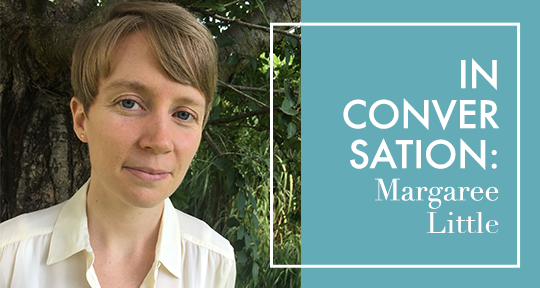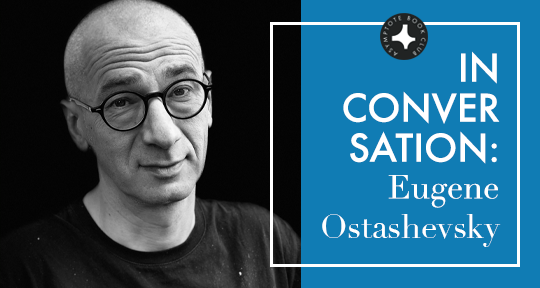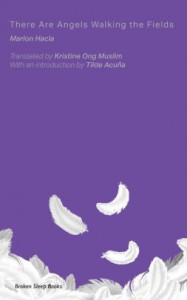Featured in the current Spring 2022 issue, Osip Mandelstam’s “Lines on an Unknown Soldier” is a nightmarish yet poignant reflection on war. Margaree Little’s new translation aims to bring out previously overlooked aspects of Mandelstam’s poetry by practicing devoted attention to his original text and to its historical and personal contexts. In her discussion of Mandelstam, Little glides between erudition and intimacy with his works. Our correspondence led to surprising discoveries like the everyday object Mandelstam despised, serious consideration of the political significance of translating Mandelstam today, and renewed appreciation for how literary insight can shape translation.
Michal Zechariah (MZ): Before translating Osip Mandelstam’s poem this spring, you published another translation of his work in American Poetry Review. How did you first encounter Mandelstam’s poetry, and what drew you to translate it? What usually guides your choice when you decide to take on a translation project?
Margaree Little (ML): About ten years ago, around the time I was in graduate school, I first encountered Mandelstam’s work in the Clarence Brown and W.S. Merwin translations. I was drawn to the poems, but remember feeling that I was missing something, as though there was a screen separating me from the poems.
In 2016, I began to translate [Marina] Tsvetaeva’s work, focusing increasingly on her political poems that have largely been neglected in English-language translation. This work drew me further into that world, that moment. Then, two years later, my partner and I were visiting our friend, the poet and translator Eleanor Wilner, in Philadelphia. Eleanor has talked about the influence of Mandelstam on her own work and gave me her copy of Nadezhda Mandelstam’s extraordinary first memoir, Hope Against Hope. The book describes the last four years before Mandelstam’s second arrest and death, but more than that, it offers a window into the worldview that grounded his poetry and his entire life.
After reading this book, I went back to his poems and started to translate them to get closer to the original work. I found the originals so rich in music, in layers of meaning and feeling, and so varied in tone, including sharp awareness and wit.
I also began to realize the degree to which Brown and Merwin, as well as other dominant English-language translators, have altered the poems. These changes range from what could be considered more benign (clunky wording or phrasing) to distortions that fundamentally alter the poems’ meaning. I found particularly disturbing the tendency to play up Mandelstam’s death in the translations, sometimes changing the poems radically to do so. This tendency creates a romantic myth of the poet, while erasing crucial parts of his actual work. The gap between the originals and existing versions made me want to continue to translate the poems and honor them on their own terms.
I suppose these are the dual threads that run through my translation work, whether of Tsvetaeva or Mandelstam; a connection to the poems and the deep urgency within them, and a frustration with how they have previously been translated—or ignored, or distorted—in English.
















We Stand With Ukraine: “The Ghost of Kyiv” by B. R. Dionysius
Through his phone’s / cracked canopy he plays you a black streak / over Kyiv
In this week’s edition of literary works written in support and solidarity with the citizens of Ukraine, we are proud to present a poem by B. R. Dionysius. “The Ghost of Kyiv” movingly comments on the distancing voyeurism of watching tragedy unfold from afar, and of wide-ranging human affairs condensed into byte-sized consumption. As we continue to navigate the ever-shifting boundaries between the virtual and the real, Dionysius’ poem works between man and machine, its precise lines edging out the bodies caught within them.
The Ghost of Kyiv
Your son shows you a Tik Tok clip;
You both play Russian computer games.
Simulators that glorify World War Two/
mid-century armour & the cold war era
where each new development increased
penetration; rounds that defeated steel’s
stubborn thickness. You watch your son
take to the skies over maps of Ukraine.
1941. Get shot down a lot. The next best
thing to flying solo. Through his phone’s
cracked canopy he plays you a black streak
over Kyiv; a medieval, barbed arrowhead
punching through the sky’s grey cuirass. For
fifty years the fulcrum has been idle; three up
-grades, engines, radar, missiles, but never seen
combat. Seventies bones good enough to mix
it over the capital with its modern successors,
flankers & frogfeet; a retro jet where the ghost
got good purchase from his re-engineered multi-
role fighter. The first ace in a day in fifty years.
Not since Alam’s F-86 sabre rattled in the Indo-
Pakistani war has the aerial world revelled in six
kills in one day. Your son doesn’t bother to fact
check the video, sold on social media’s bravado;
a pilot’s last stand. He tells you the ghost was shot
down, but ejected. His short clip trimmed to fit.
READ MORE…
Contributor:- B. R. Dionysius
; Place: - Ukraine
; Writer: - B. R. Dionysius
; Tags: - machinery
, - Poetry
, - social commentary
, - social media
, - voyeurism
, - War